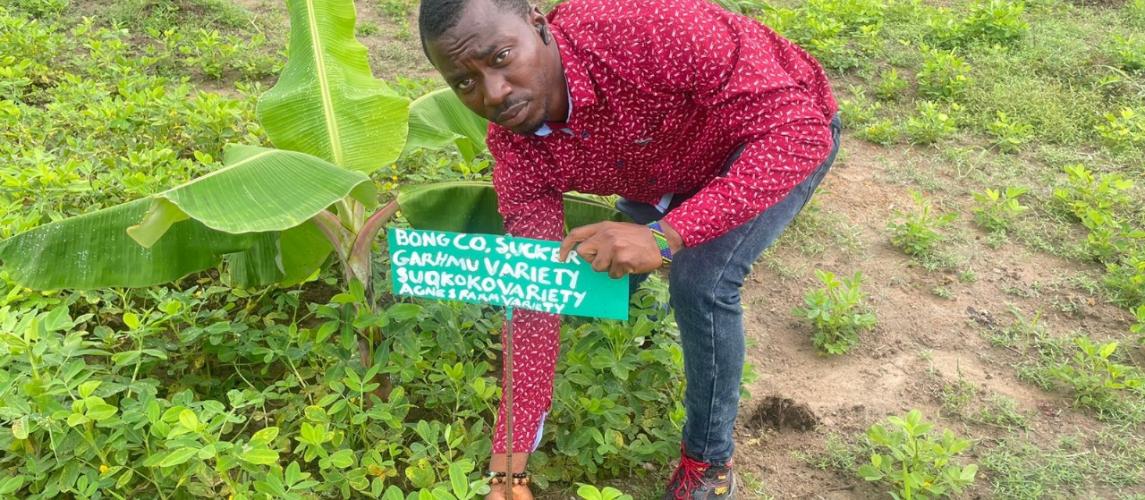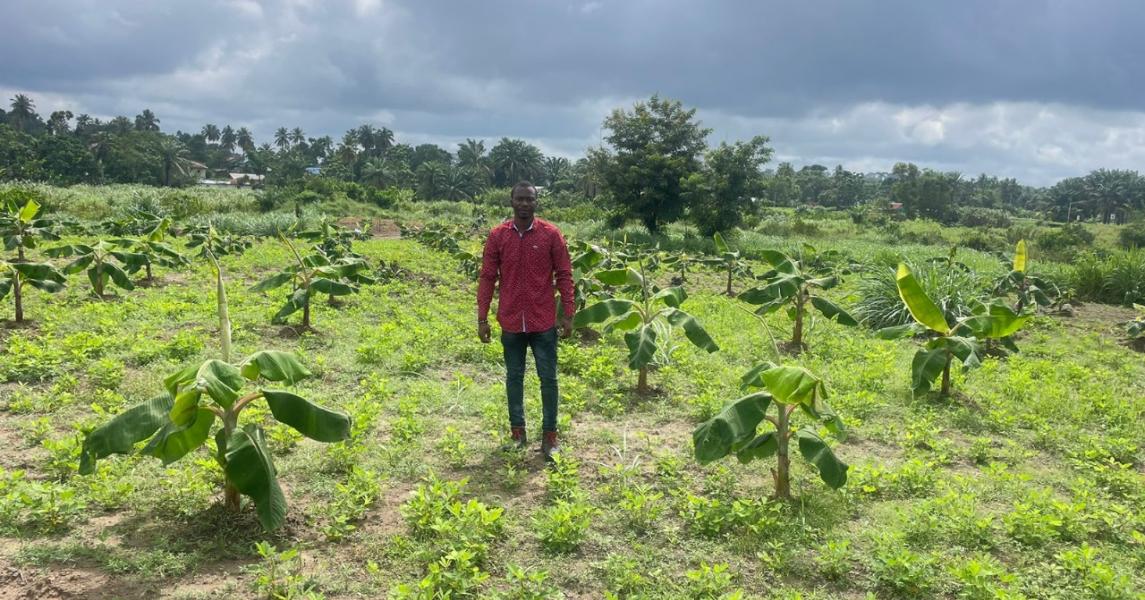
CARI’s Biotech Unit Launches Liberia’s First High-Yield, Disease-Free Plantain Hub
SUAKOKO, Bong County – The Department of Biotechnology and Laboratory Services at the Central Agricultural Research Institute (CARI) has launched Liberia’s first high-yield, disease-free plantain hub, marking a major milestone in agricultural innovation and farmer empowerment.
This initiative underscores the department’s strategic role in advancing agricultural research and development nationwide. Between January and July 2025, the team prioritized the cultivation of disease-free, high-yielding plantain varieties, intercropped with groundnuts to promote weed suppression, improve soil fertility, and boost income generation.
According to Agronomist Numei Wamah, over 373 plantain suckers were sourced from Bong, Nimba, and Lofa Counties and intercropped with groundnuts to maximize land use and enhance post-harvest profitability.
“We acquired 250 suckers from the CARI National Cocoa Garden in Beeplay, Nimba County, and an additional 123 suckers from two exemplary farmers in Bong and Lofa Counties,” Mr. Wamah explained. “The Department plans to replicate this model in three additional counties to expand access to disease-free planting materials.”
Mr. Wamah, who led the establishment of the hub, emphasized that the Biotechnology and Laboratory Services Program equips thousands of resource-constrained farmers with modern tools and technologies to improve productivity across the agricultural value chain.
At CARI, biotechnology research and the strategic use of genetic resources are driving transformative solutions to Liberia’s most pressing agricultural challenges. These innovations support the development of improved crop varieties, livestock, food products, and agricultural vaccines—while promoting efficiency, profitability, and environmental sustainability.
The Biotechnology and Genetic Resource Management thematic area supports CARI’s institutional mandate by generating and promoting knowledge, technologies, and practices that respond to stakeholder needs and emerging opportunities. This mandate is realized through five key outcomes, including the development and promotion of demand-driven biotechnology and genetic resource innovations, formulation and dissemination of market strategies for biotechnology-based value chains, advocacy for policy options that strengthen biotechnology and genetic resource systems, capacity building for integrated biotechnology research and implementation, and the expansion of accessible knowledge and technologies for stakeholders across the sector.
The Biotechnology and Laboratory Services Department remains central to Liberia’s agricultural research landscape, specializing in the precision multiplication of crops and the distribution of disease-resistant planting materials. Through its Biotechnology Unit, the department advances crop resilience, food safety, and sustainable production systems.
Within this framework, the Genetic Resource Unit plays a vital role in seed conservation and quality assurance. By safeguarding genetic materials and ensuring their viability for future distribution, the unit underpins agricultural sustainability and enhances the productivity of farming communities across the country.

